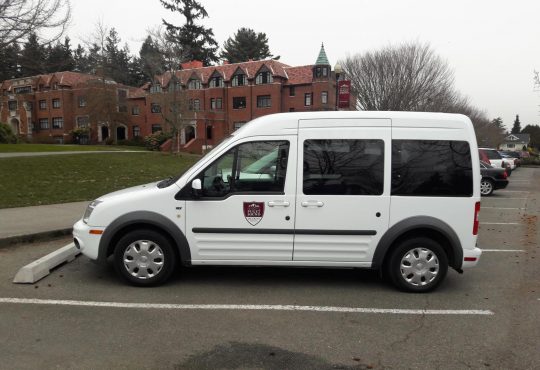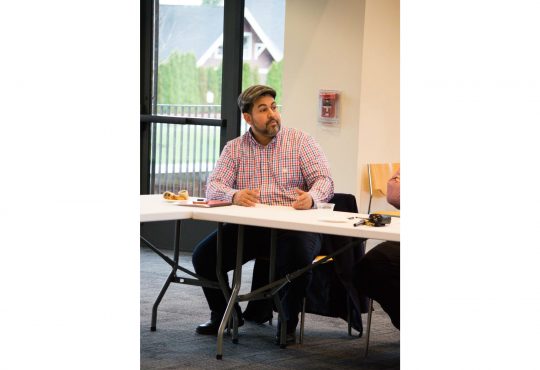Security Services is often viewed negatively by students for enforcing the rules on campus, going unnoticed and unthanked for their more important role of keeping us safe. Although many students are unaware of it, Security on our campus is actually very professional. Security Services seeks to ensure that our campus is secure, but if students are not supportive or cooperative with this mission, then there is only a limited extent to which we can be safe. For this reason, Security wants all of us to more actively help keep campus safe, which I think many people would agree they could do a better job at.
This past week I spoke with Todd Badham, Director of Security Services, and John Hickey, Executive Director of Community Engagement, about security on our campus. Both of them informed me about the work and policies of Security Services, including what they think are its strengths and potential weaknesses. I personally was surprised to learn about many of the procedures in place to confront acts of violence on our campus and prevent crime. But what I was most surprised about was that they each said that the greatest weakness they see in Security on our campus is the lack of active student involvement in preventing crime on campus and becoming familiarized with emergency procedures.
It makes sense that not having a vigilant student body could jeopardize our overall security. We often assume that, because our school is located in a safe and well-off neighborhood, our campus is immune to crime and violence. But the fact is, crime does happen here.
Security Services tries to keep a visual but low-profile presence on campus. This is most evident with the 24/7 patrols, but there are other crime-preventing tools used by Security, such as the routine campus-wide emergency drills. These used to be primarily fire drills, but as of this year, there are now semesterly drills to prepare for acts of violence. Other, more subtle ways that Security tries to remain visible include the emergency pamphlets on the walls in every dorm room, posters near bike racks reminding you to lock your bike with a U-bolt lock, and even the Security Report included every week in The Trail.
Although Security tries to be accessible to all students, they can only be successful at their jobs if students are responsive to their efforts and become more vigilant. Take, for example, the emergency drills: no one really likes participating in them, and many people only do so when they have to, such as if they’re in class or in the dorms. Even though these drills can seem unnecessary, it is essential that people know what to do in the case of a real emergency, especially one such as an active shooter on campus, when quick decisions are an imperative. Or, similarly, I could use the example of the emergency procedures provided in every syllabus, which professors are required to include. In almost every class I’ve been in, professors either skim or skip this part, and students don’t bother to read it either.
At other times, students may be careless without meaning to be, such as when they leave their items unattended in the library or they leave their dorm rooms unlocked. These are things that everyone does because they either forget or don’t think much of it because crime is so low on and around campus. But as the weekly Security Report in The Trail shows, crime and theft happens on campus more often than any of us would like to admit. Simple things, such as always locking your door or securing your bike, can change this trend.
When I asked Todd and John what they would most like to see students do to become more vigilant, they both agreed that they want students to make sure they are registered in the campus-wide emergency notification system that will send texts, emails and phone calls to inform students immediately in the event of an emergency or drill. They would also like students to become better familiarized with emergency procedures and, in general, to be on the lookout for suspicious activity and report it when necessary. (For all emergency resources on campus, and to register for the emergency notification system, go to: www.pugetsound.edu/emergency/.)
Campus Security is a valuable resource we have, and they often don’t receive the appreciation from students that they deserve in keeping us safe. Even though no one likes to be written up for a violation, surely this isn’t a good enough reason for anyone to ignore the good work that Security does, or to disregard the responsibility we all share to keep each other safe. Students can, and should, be active in preventing and reporting crime on campus. It can be as simple as locking your door.






